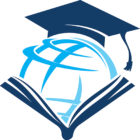Since the main focus of my website and blog is on study skills, it might sometimes seem that I do not place enough emphasis on acquiring knowledge, or that I believe that you should put so much time and effort into improving your study skills that the goal of increasing your knowledge is secondary to it. As with many topics I have written about, finding the right balance between knowledge and skills is the most important thing, and it should certainly be one of your goals as you work to improve your study skills. However, if your study skills are weak, putting extra focus on them in the short term is important, because it will allow you to access, obtain, and retain more knowledge over the long haul. As I have said many times before, improving your study skills is a process that takes time. The more improvements to your study skills you make over time, the more knowledge you will gain, because the time and effort you put into your study skills will become more second nature and less laborious. This will allow your study skills to be a complement to your academic skills, rather than a supplement, which will in turn allow you to get the most you can out of your studies.
If you are still at the very beginning of your study skills journey, you may well be feeling overwhelmed by your teachers’ expectations, my advice and suggestions, and most of all, the sheer volume and complexity of the knowledge that is contained in the curriculums of your courses. If this is the case, try to remind yourself, as often as you remember to or need to, that both your teachers’ and my first goal with any study skills requirements or suggestions is to increase your ability to access the content knowledge in your courses. Whether you are learning vocabulary, finding main ideas, taking notes, writing summaries, or answering questions, anything you do that requires you to focus on the important information in the chapter of a novel or the unit or chapter of an academic subject rather than focusing on all the information that you read or hear is meant to increase your access to the knowledge contained within it. Whether you are writing or typing information according to your teachers’ requirements or devising your own ways to do so, taking the time to make the notes you keep organized and accurate, as well as highlighting, underlining, illustrating, or anything else you might do to call your attention to and/or increase your comprehension of important points, will go a long way toward making new information seem less overwhelming, which will, in turn, increase your ability to learn and use it.
In addition to increasing your ability to access new information that is placed in front of you in class, developing and improving your study skills will also increase your ability to obtain information that is not presented to you directly. If you are someone who struggles to access the information contained in your coursework, you probably also struggle with, and perhaps even dread, any assignment that requires you to do additional research, especially if you are required to use both online and offline sources to complete it. In addition to following whatever directions about both content and sources your teacher provides, another way to increase your ability to obtain new knowledge through research is to apply as many of the strategies you use to take notes in class to it. If your teacher’s directions for the project aren’t specific enough about how you should take notes, use what you do in class as a guide, or at least as a place to start, so that you focus on the most important points, rather than on everything you read. If you are given specific directions in regard to content, keep the list of required questions or outline with you as you read, so you can write the pertinent information down as you find it and keep yourself from writing more than you need. Whether on notecards, in a notebook, or on your personal device, keep your notes as organized and accurate as possible by listing sources and their page numbers, and if you quote something directly instead of writing it in your own words, make sure you include the quotation marks and source and page number as you are taking notes, so that you will be able to place the quote in your paper and cite it correctly without plagiarizing. As I have said before about other study skills, improving your ability to obtain knowledge through research requires planning. The more you use directions and project requirements to plan your research and keep it organized, the less overwhelming it will seem, and the less overwhelming doing research becomes for you, the more knowledge you will obtain from it.
The more you are able to do to increase your ability to access and obtain new knowledge, the more able you will become to retain it, and to remember and use it over time. As with so many other study skills, your ability to remember what you learn will improve if you make the effort to improve it, and if you employ strategies that will help you, just as you would with any other study skill. In addition to improving your ability to memorize by employing memory tricks and doing more than simply reading over your notes when you are preparing for a test, remembering and retaining knowledge also involves understanding, interpreting, and applying what you’ve learned, not just so you can perform well on assignments and tests in the moment, but also so you can recall and use what you’ve learned when you are studying the same or related topics in more depth at a later date. Teachers will often begin a more advanced course of study by reviewing what you’ve learned previously, asking you what you remember about a topic, and/or introducing new topics in a way that requires you to access and make connections to your prior knowledge. Whether you are accessing new information in class, obtaining new information through research, or learning anything new through activities, with friends and family, or by seeing and hearing new things in your daily life, you can build your knowledge base and increase your ability to retain and remember what you’ve learned by connecting it to something you already know. The more able and willing you are to do this outside of school, the more able and willing you will be to do it in school. No matter what you are learning, and no matter how you feel about any particular subject or class, connecting as much as you are learning as you possibly can to things you already know will build your knowledge base, so that it is there for you to draw upon and connect to whenever you are presented with new information.
Developing good study skills will increase your ability to access new knowledge in your coursework, obtain new knowledge through research, and retain what you’ve learned over time. Though it may sometimes seem as if you are putting too much time and effort into developing your skills and not enough into acquiring knowledge, remembering that developing your study skills will aid your ability to build your knowledge base will allow you to find the proper balance between the two. Though knowledge is the ultimate goal, study skills are how you reach it. As you continue on your study skills journey, the effort you make with them will pay off with an increase in the amount and complexity of the knowledge you are able to acquire.

